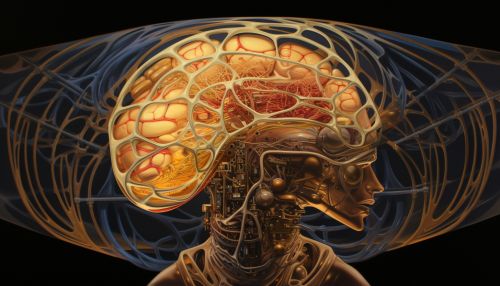The Role of Gut-Brain Axis in Health and Disease
Introduction
The gut-brain axis is a complex system of communication between the gut and the brain. This system involves various pathways, including the vagus nerve, the endocrine system, and the immune system. The role of the gut-brain axis in health and disease is a rapidly growing field of research, with implications for a wide range of conditions, from mental health disorders to autoimmune diseases.


Anatomy and Physiology of the Gut-Brain Axis
The gut-brain axis is composed of the central nervous system (CNS), the enteric nervous system (ENS), and the gastrointestinal tract (GI tract). The CNS includes the brain and spinal cord, while the ENS, often referred to as the "second brain," is a complex network of neurons embedded in the walls of the GI tract. The ENS can function independently of the CNS, but the two systems are in constant communication.
Communication Pathways
There are several pathways through which the gut and brain communicate. These include the neural pathways, the endocrine pathways, and the immune pathways.
Neural Pathways
The primary neural pathway between the gut and the brain is the vagus nerve, the longest cranial nerve in the body. The vagus nerve carries signals from the gut to the brain and vice versa, allowing for bidirectional communication.
Endocrine Pathways
The endocrine pathway involves the release of hormones and other chemical messengers. For example, the gut produces about 90% of the body's serotonin, a neurotransmitter that plays a crucial role in mood regulation.
Immune Pathways
The immune pathway involves the interaction of the gut microbiota with the immune system. The gut is home to trillions of microorganisms, collectively known as the gut microbiota, which play a crucial role in maintaining immune homeostasis.
Role in Health
The gut-brain axis plays a vital role in maintaining health. It is involved in various physiological processes, including digestion, mood regulation, immune response, and even cognition.
Digestion
The gut-brain axis plays a crucial role in digestion. The brain can influence gut motility, secretion, and permeability, while the gut can send signals to the brain about the nutritional status and other aspects of the digestive process.
Mood Regulation
The gut-brain axis is also involved in mood regulation. As mentioned earlier, the gut produces a significant amount of serotonin, which can influence mood. Moreover, the gut microbiota can produce other neurotransmitters and metabolites that can affect brain function and mood.
Immune Response
The gut-brain axis plays a crucial role in the immune response. The gut microbiota can modulate the immune system, influencing its response to pathogens and other threats. Moreover, the brain can influence the immune response through the vagus nerve and other pathways.
Cognition
Recent research suggests that the gut-brain axis may also be involved in cognition. Some studies have found associations between the gut microbiota and cognitive functions, such as memory and learning.
Role in Disease
Disruptions in the gut-brain axis have been implicated in a wide range of diseases, from mental health disorders to autoimmune diseases.
Mental Health Disorders
Several mental health disorders, including depression and anxiety, have been linked to disruptions in the gut-brain axis. For example, some studies have found alterations in the gut microbiota in individuals with these disorders.
Autoimmune Diseases
The gut-brain axis may also play a role in autoimmune diseases. Some research suggests that alterations in the gut microbiota can trigger an abnormal immune response, leading to the development of autoimmune diseases.
Neurological Disorders
Disruptions in the gut-brain axis have also been implicated in neurological disorders, such as Parkinson's disease and Alzheimer's disease. Some studies suggest that changes in the gut microbiota can influence the progression of these diseases.
Future Directions
The role of the gut-brain axis in health and disease is a rapidly growing field of research. Future studies may provide new insights into the mechanisms underlying the gut-brain axis and its role in various conditions. This could potentially lead to the development of new treatments and interventions.
